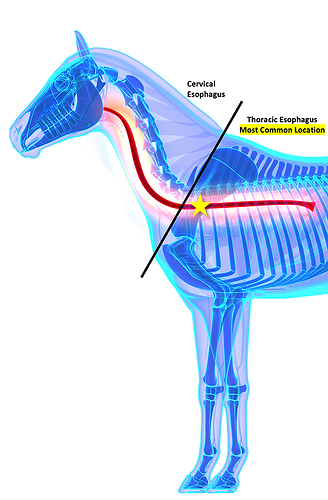My recurrent case of colic was due to a problem with protein. Mostly in alfalfa, but of course some feed companies put alfalfa meal or other protein source into bagged feed too. Or another protein source. Vets simply shrugged, and sold me banamine. She would colic several times a week, severely. One night when she was sick a yearling, in desperation as the banamine didn’t seem to be working, I tried “Dr. Green”, and turned her out onto grass pasture. She was recovered by morning and grazing. But I didn’t learn much from that occasion… thought she had just eventually recovered due to the banamine. Eventually I put it together that it was related to alfalfa, that it didn’t happen when on grass pasture OR grass hay, only when she got alfalfa. She’s now on strictly grass pasture or hay, NO alfalfa, and NO added protein of any sort in grain ration… beet pulp and high fat extruded kibble and mineral source. NO more colic episodes since that change. The difference is like night and day.
Since we now make our own hay, I simply have worked up some feral grass fields in addition to our alfalfa fields, we make enough small square grass bales which are cut and baled specifically for her. It’s not fancy hay, known locally as “meadow grass”- a mixture of local grasses that grow locally in damp fields. She’s 24 this year. This hay is the reason she is still alive and thriving.
I can’t say that alfalfa is your horse’s problem. But look for something in the diet that may well NOT bother most horses, but does bother yours. It’s a process of elimination. What is she eating when you go through a phase without the colic? (if you do). Good luck.

